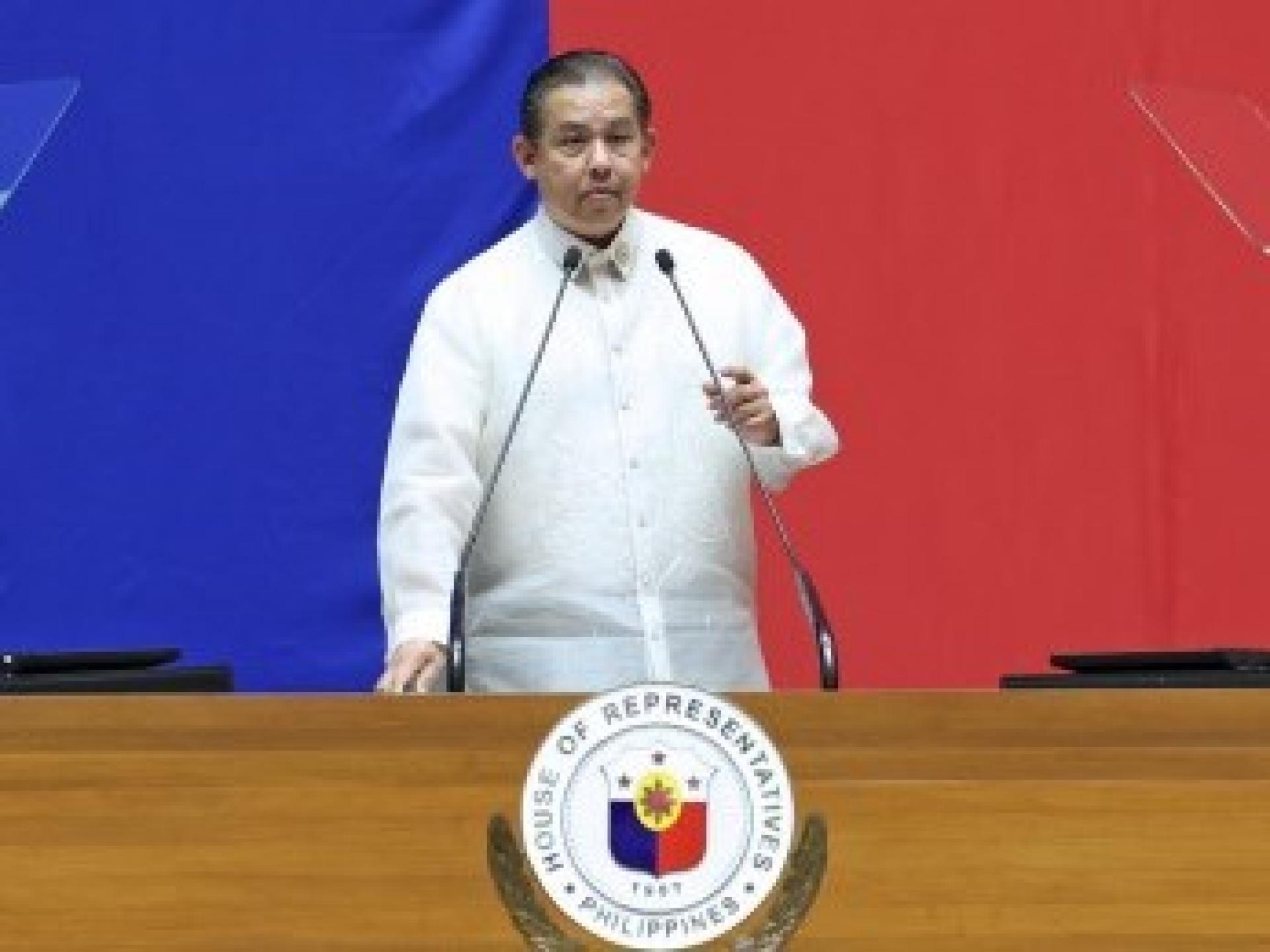(Manila, 13th) — Speaker of the Philippine House of Representatives Ferdinand Martin Romualdez said Wednesday that the House will implement at least five reforms in deliberating and executing next year’s annual budget, aiming to enhance transparency and broadly include public participation.
He made the statement as Finance Secretary Amenah Pangandaman submitted the President’s 2026 National Expenditure Program to Congress, totaling 6.793 trillion pesos (about 22% of GDP).
Romualdez pointed out that the five reforms include: abolishing the traditional small committee that amends the budget after congressional approval; opening the House-Senate budget coordination meetings to the public and the media; inviting civil society, people's organizations, and the private sector to participate in budget hearings; strengthening budget execution oversight, requiring agencies to report in a timely manner and making real-time tracking of major projects; and prioritizing investments in livelihood improvement projects, including agriculture, infrastructure, education, healthcare, national defense, and disaster preparedness.
He emphasized: “The budget is not just a spending plan, but also a mirror of the government’s priorities and a gauge of accountability to the people. We must ensure the budget is transparent, inclusive, and earns public trust.”
The 2026 budget reflects a 7.4% increase over this year, with higher spending for education, healthcare, social security, and food security. The education budget will, for the first time, reach the UNESCO-recommended 4% of GDP, totaling 1.224 trillion pesos, accounting for 16.6% of the total budget, exceeding the global average of 14.2%. Healthcare spending will rise by 23.6%, covering PhilHealth subsidies, medical assistance for vulnerable groups, and hospital budgets.
For food security, the Department of Agriculture and attached agencies will receive 239.2 billion pesos, the Rice Competitiveness Enhancement Fund will be tripled, the national rice program budget will increase by 38%, and a National Agro-Food Center will be established while the “Rice for All” program will continue, benefiting over 15 million families.
Infrastructure spending will remain at 5-6% of GDP, along with 87.33 billion pesos allocated for government digital transformation. Other major appropriations include 55.2 billion pesos for labor and employment, 299.3 billion pesos for the Department of National Defense, 287.5 billion pesos for the Department of the Interior and Local Government, and 67.9 billion pesos for the Department of Justice.
Romualdez stressed that reform does not slow down the budget, but makes the process stronger and more reliable. He said: “In the coming weeks, we will review the budget page by page and ask ourselves, ‘Does this benefit the people?’ If it does, we support it; if it’s not good enough, we improve it.”
Romualdez pointed out that the five reforms include: abolishing the traditional small committee that amends the budget after congressional approval; opening the House-Senate budget coordination meetings to the public and the media; inviting civil society, people's organizations, and the private sector to participate in budget hearings; strengthening budget execution oversight, requiring agencies to report in a timely manner and making real-time tracking of major projects; and prioritizing investments in livelihood improvement projects, including agriculture, infrastructure, education, healthcare, national defense, and disaster preparedness.
He emphasized: “The budget is not just a spending plan, but also a mirror of the government’s priorities and a gauge of accountability to the people. We must ensure the budget is transparent, inclusive, and earns public trust.”
The 2026 budget reflects a 7.4% increase over this year, with higher spending for education, healthcare, social security, and food security. The education budget will, for the first time, reach the UNESCO-recommended 4% of GDP, totaling 1.224 trillion pesos, accounting for 16.6% of the total budget, exceeding the global average of 14.2%. Healthcare spending will rise by 23.6%, covering PhilHealth subsidies, medical assistance for vulnerable groups, and hospital budgets.
For food security, the Department of Agriculture and attached agencies will receive 239.2 billion pesos, the Rice Competitiveness Enhancement Fund will be tripled, the national rice program budget will increase by 38%, and a National Agro-Food Center will be established while the “Rice for All” program will continue, benefiting over 15 million families.
Infrastructure spending will remain at 5-6% of GDP, along with 87.33 billion pesos allocated for government digital transformation. Other major appropriations include 55.2 billion pesos for labor and employment, 299.3 billion pesos for the Department of National Defense, 287.5 billion pesos for the Department of the Interior and Local Government, and 67.9 billion pesos for the Department of Justice.
Romualdez stressed that reform does not slow down the budget, but makes the process stronger and more reliable. He said: “In the coming weeks, we will review the budget page by page and ask ourselves, ‘Does this benefit the people?’ If it does, we support it; if it’s not good enough, we improve it.”
